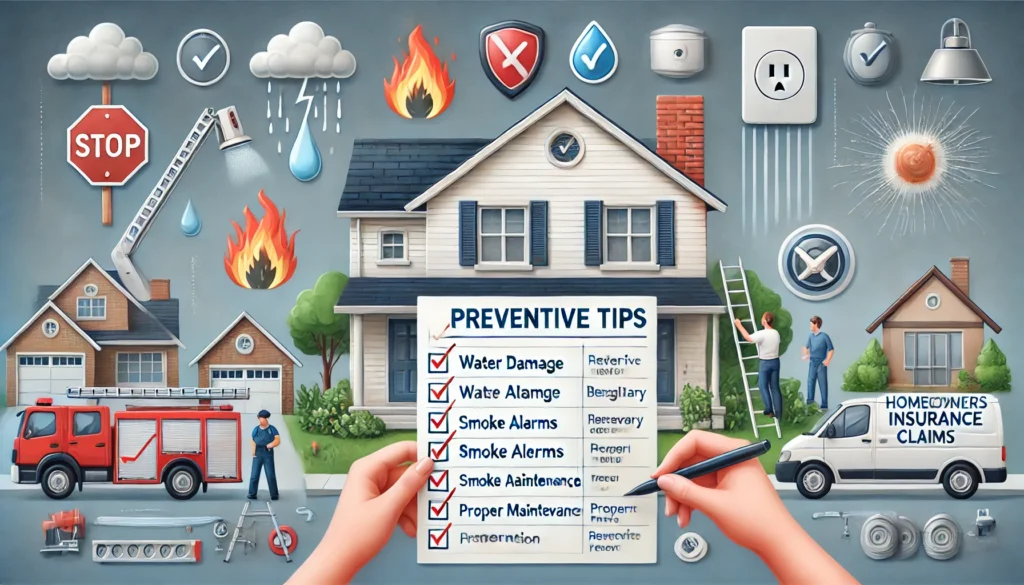- Introduction to Insurance for Small Business Owners
- The Importance of Insurance: Explain why insurance is crucial for small business owners in protecting their investments, assets, and livelihood.
- Common Risks Faced by Small Businesses: Highlight typical risks that small businesses encounter, including property damage, liability issues, and employee-related risks.
- Overview of the Article’s Structure: Briefly outline the essential types of insurance coverage that will be discussed, setting the stage for detailed exploration.
- Understanding the Basics of Business Insurance
- What is Business Insurance?: Define business insurance and its purpose in providing financial protection against various risks.
- Key Terminology: Introduce important insurance terms, including premiums, deductibles, liability, and coverage limits.
- Types of Coverage: Briefly outline the various types of insurance coverage available for businesses, noting that they can be tailored to fit specific needs.
- General Liability Insurance
- Definition and Purpose: Define general liability insurance and explain its role in protecting businesses from claims of bodily injury, property damage, and personal injury.
- Coverage Details: Discuss the specific types of claims covered by general liability insurance, such as slip-and-fall accidents and advertising injuries.
- Importance for Small Businesses: Explain why this type of coverage is critical for small businesses, particularly those that interact with customers.
- Cost Factors: Outline the factors that influence the cost of general liability insurance premiums, including business size, industry, and claims history.
- Property Insurance
- What is Property Insurance?: Define property insurance and its purpose in protecting physical assets, including buildings, equipment, and inventory.
- Types of Property Insurance: Discuss the different types of property insurance, including commercial property insurance and business interruption insurance.
- Importance of Coverage: Highlight why property insurance is essential for safeguarding business assets from risks such as fire, theft, and natural disasters.
- Valuation Methods: Explain the different methods of property valuation (e.g., replacement cost vs. actual cash value) and their impact on coverage and premiums.
- Business Interruption Insurance
- Definition and Purpose: Define business interruption insurance and its role in providing financial support to businesses that experience temporary shutdowns due to covered events.
- What Does It Cover?: Discuss the types of losses covered, including lost income, fixed expenses, and operating costs during a period of business interruption.
- Why It’s Essential: Explain why small businesses, especially those with physical storefronts, should consider this coverage to protect against unexpected disruptions.
- Claim Process: Provide an overview of how to file a claim for business interruption insurance and what documentation is typically required.
- Workers’ Compensation Insurance
- What is Workers’ Compensation?: Define workers’ compensation insurance and explain its purpose in providing medical and wage benefits to employees injured on the job.
- Legal Requirements: Discuss the legal requirements for workers’ compensation in different states and industries, highlighting its necessity for most businesses.
- Benefits of Coverage: Outline the benefits of having workers’ compensation insurance, including protection against lawsuits and coverage for medical expenses.
- Managing Workers’ Compensation Claims: Offer tips on managing claims effectively and ensuring compliance with state regulations.
- Professional Liability Insurance
- Definition and Purpose: Define professional liability insurance (also known as errors and omissions insurance) and explain its role in protecting businesses against claims of negligence or inadequate work.
- Who Needs It?: Discuss the types of businesses that typically require professional liability insurance, such as consultants, contractors, and healthcare providers.
- Coverage Details: Highlight the types of claims covered by professional liability insurance, including mistakes, omissions, and breach of duty.
- Importance for Service Providers: Explain why this coverage is particularly vital for service-oriented businesses that provide professional advice or services.
- Commercial Auto Insurance
- What is Commercial Auto Insurance?: Define commercial auto insurance and explain its purpose in providing coverage for vehicles used for business purposes.
- Coverage Options: Discuss the various coverage options available, including liability, collision, comprehensive, and uninsured/underinsured motorist coverage.
- Importance for Businesses with Vehicles: Explain why businesses that use vehicles for deliveries, client meetings, or transportation need this type of coverage to protect against accidents and liabilities.
- Factors Influencing Premiums: Outline the factors that affect the cost of commercial auto insurance, such as the number of vehicles, driver history, and types of vehicles insured.
- Cyber Liability Insurance
- What is Cyber Liability Insurance?: Define cyber liability insurance and explain its role in protecting businesses against data breaches and cyberattacks.
- Why Cyber Coverage is Essential: Discuss the increasing risk of cyber threats and the potential financial impact on small businesses, including legal fees and customer notification costs.
- Types of Coverage Offered: Highlight the different types of coverage available, such as data breach response, network security liability, and business interruption due to cyber incidents.
- Staying Compliant with Regulations: Explain how having cyber liability insurance can help businesses comply with data protection regulations and enhance customer trust.
- Commercial Umbrella Insurance
- What is Commercial Umbrella Insurance?: Define commercial umbrella insurance as an additional layer of liability coverage that goes beyond the limits of primary insurance policies.
- Benefits of Umbrella Coverage: Discuss the benefits of having an umbrella policy, including increased protection against major claims and lawsuits.
- When to Consider Umbrella Insurance: Explain scenarios in which small businesses should consider investing in commercial umbrella insurance, such as those with significant assets at risk.
- Cost Considerations: Provide insights into the cost of umbrella insurance and how it can be a cost-effective way to enhance liability protection.
- Special Considerations for Specific Industries
- Industry-Specific Insurance Needs: Discuss how different industries may have unique insurance requirements, such as construction, healthcare, or technology.
- Tailoring Coverage to Business Needs: Encourage business owners to assess their industry-specific risks and seek tailored insurance solutions that address those needs.
- Examples of Specialized Policies: Highlight examples of specialized insurance policies, such as product liability for manufacturers or malpractice insurance for healthcare providers.
- Consulting with Industry Experts: Suggest consulting with insurance brokers who specialize in specific industries for tailored advice and solutions.
- How to Choose the Right Insurance Provider
- Evaluating Insurance Providers: Discuss factors to consider when evaluating insurance companies, such as financial strength, customer service, and claims handling.
- Reading Reviews and Testimonials: Encourage business owners to read reviews and testimonials from other policyholders to gauge the reliability of an insurer.
- Understanding Policy Terms and Conditions: Emphasize the importance of thoroughly reading and understanding policy documents before purchasing insurance.
- Seeking Recommendations: Suggest seeking recommendations from fellow business owners or industry associations for reputable insurance providers.
- Getting Professional Help: Recommend working with an experienced insurance broker to navigate the complexities of choosing the right insurance provider.
- The Claims Process: What to Expect
- Understanding the Claims Process: Provide an overview of the typical claims process for small business insurance, from reporting incidents to receiving payouts.
- Documentation Requirements: Discuss the importance of keeping detailed records and documentation of incidents to support claims.
- Timelines for Claims Processing: Explain the expected timelines for claims processing and the factors that can influence how quickly claims are resolved.
- Common Challenges: Highlight common challenges that small business owners may face during the claims process and how to address them.
- Appealing Claim Denials: Offer guidance on how to appeal denied claims and the steps to take if a claim is disputed.
- Common Mistakes to Avoid with Business Insurance
- Underinsuring Your Business: Discuss the dangers of underinsurance and how it can lead to significant financial loss in the event of a claim.
- Neglecting to Review Policies Regularly: Emphasize the importance of reviewing insurance policies regularly to ensure they still meet business needs as the company grows.
- Failing to Understand Exclusions: Highlight the risks of not understanding policy exclusions and how they can impact coverage during a claim.
- Ignoring the Importance of Coverage Limits: Explain the consequences of having insufficient coverage limits and how they can leave businesses vulnerable.
- Relying Solely on General Liability Insurance: Discuss the pitfalls of relying only on general liability insurance without considering other essential coverage types.
- Real-Life Examples: Navigating Business Insurance
- Example 1: A Retail Store Facing Theft: Share a case study of a retail store that successfully navigated a theft incident using its property insurance coverage.
- Example 2: A Freelancer’s Professional Liability Claim: Illustrate how a freelancer used professional liability insurance to defend against a claim of negligence.
- Example 3: A Construction Company’s Safety Incident: Describe how a construction company managed a workplace accident with workers’ compensation insurance.
- Example 4: A Small Business Affected by a Cyberattack: Present a scenario where a small business utilized cyber liability insurance to recover from a data breach.
- Example 5: An Entrepreneur’s Experience with Business Interruption Insurance: Explain how an entrepreneur benefited from business interruption insurance during a temporary closure due to unforeseen circumstances.
- Future Trends in Small Business Insurance
- Increased Focus on Cybersecurity Insurance: Discuss the growing importance of cyber liability insurance as businesses face more cyber threats.
- The Rise of On-Demand Insurance: Highlight trends toward on-demand insurance products that provide flexibility and tailored coverage for specific needs.
- Sustainability and Green Insurance: Explore the emergence of insurance products that cater to environmentally friendly businesses and practices.
- Technological Advancements in Claims Processing: Discuss how technology is changing claims processing, making it more efficient and user-friendly.
- Emergence of Comprehensive Packages: Explain how insurers are increasingly offering comprehensive insurance packages that bundle multiple types of coverage for small businesses.
17. Evaluating Insurance Costs: What Affects Premiums?
- Factors Influencing Premiums: Discuss the various factors that insurance companies consider when determining premiums, such as business size, location, industry, and claims history.
- The Role of Industry Risk: Explain how businesses in higher-risk industries (e.g., construction, manufacturing) typically face higher premiums due to the increased likelihood of claims.
- Impact of Business Structure: Discuss how the legal structure of a business (sole proprietorship, LLC, corporation) can affect insurance costs and liabilities.
- Employee Count and Coverage Needs: Explain how the number of employees can influence premiums, particularly for workers’ compensation and liability insurance.
- Improving Risk Management Practices: Provide tips on how businesses can improve their risk management practices to potentially lower their insurance premiums, such as implementing safety training programs or enhancing security measures.
18. Navigating Insurance Regulations and Compliance
- Understanding State-Specific Regulations: Discuss the importance of understanding insurance regulations that vary by state and how they impact coverage requirements.
- Licensing and Compliance: Explain the necessity of maintaining proper licensing and compliance with local regulations to avoid fines and ensure coverage validity.
- The Role of Regulatory Bodies: Describe the role of state insurance departments and how they oversee the insurance industry to protect consumers and maintain fair practices.
- Staying Updated on Changes: Emphasize the importance of staying informed about changes in insurance laws that may affect small business operations and insurance requirements.
- Consulting with Legal Professionals: Suggest consulting with legal or compliance professionals to ensure that businesses are meeting all necessary regulatory requirements.
19. Insurance for Home-Based Businesses
- Unique Insurance Needs for Home-Based Businesses: Discuss the unique challenges and risks faced by home-based business owners and the importance of tailored coverage.
- Common Types of Coverage:
- Homeowners Insurance Riders: Explain how adding riders to homeowners insurance can provide coverage for business equipment and liability.
- Business Owner’s Policy (BOP): Define BOP and its suitability for home-based businesses, providing bundled coverage options.
- Liability Considerations: Highlight the need for liability insurance to protect against claims related to business activities conducted from home.
- Impact of Home-Based Business on Home Insurance: Discuss how operating a business from home may affect standard homeowners insurance policies and the importance of disclosure to insurers.
- Resources for Home-Based Business Owners: Provide information on resources and organizations that can assist home-based business owners in navigating insurance options.
20. Conclusion: Protecting Your Business with the Right Insurance
- Recap of Essential Coverage Types: Summarize the essential types of insurance coverage discussed in the article, including general liability, property insurance, workers’ compensation, and specialized coverages.
- The Importance of Tailored Coverage: Reinforce the idea that insurance needs vary significantly between businesses, making it crucial to evaluate specific risks and tailor coverage accordingly.
- Encouragement to Take Action: Urge small business owners to take proactive steps in assessing their insurance needs, comparing quotes, and consulting with insurance professionals.
- Long-Term Benefits of Insurance: Highlight the long-term benefits of having the right insurance in place, including financial security, peace of mind, and the ability to focus on business growth.
- Final Thoughts on Being Prepared: Conclude with a call to action for small business owners to prioritize insurance as an integral part of their business strategy, ensuring they are prepared for the unexpected and can thrive in their endeavors.
Final Conclusion
Insurance is a critical component of safeguarding small businesses against the myriad risks they face. This comprehensive guide has covered essential coverage types, from general liability and property insurance to specialized policies tailored for unique business needs. By understanding the importance of each type of insurance, small business owners can make informed decisions that protect their investments and ensure long-term success.
As you navigate the complexities of business insurance, remember that every business is unique, and so are its insurance requirements. Assessing your specific risks, understanding state regulations, and seeking tailored coverage options will provide the security needed to operate confidently in today’s competitive environment.
#1. What type of job are you looking for?
#2. What is your work experience level?
#3. What is your English level?
#4. Where are you willing to work?
#5. When can you start?
Taking proactive steps to secure the right insurance not only protects your business from potential losses but also enhances your credibility with clients and partners. It demonstrates a commitment to responsible management and the well-being of your employees and customers.
In a world filled with uncertainties, being prepared with the right insurance coverage is essential for sustaining growth and stability. Whether you are just starting or looking to expand, prioritize your business’s insurance needs as part of your overall strategy. By doing so, you will ensure that you are well-equipped to face challenges head-on and continue pursuing your entrepreneurial dreams.











